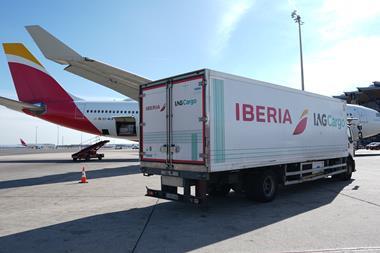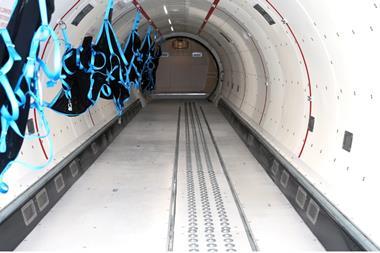UK hauliers have been warned to expect delays of up to two days and queues of up to 7,000 trucks in Kent as the UK transition from the European Union kicks in.
In a letter, the UK government said that under its reasonable worst case scenario for the first couple of months of the year, two-day delays could be expected in January if hauliers do not prepare for post-Brexit border operations on cross channel services.
However, freight groups accused the government of trying to shift blame, saying they had been asking the government for details on post-Brexit protocols for months.
British International Freight Association's (BIFA) director general, Robert Keen said: “The Government has received repeated warnings from all sides of the supply chain that neither businesses involved in trade between the EU and the UK, nor the freight and logistics sector that physically handles and manages that trade, is ready for the new procedures that will be in place from January 1, 2021.
“With just over 14 weeks to go before the end of the Brexit Transition Period, traders and logistics providers are still waiting for so much information and clarity from the government and are shocked by the lack of consistency in Government policy, systems planning and procedures."
Logistics UK policy director Elizabeth de Jong said: "Logistics UK has long warned government of the potential for border delays after the UK leaves the EU, and while there is still time to put mitigations in place to avoid them, it will be a huge challenge for government and industry to achieve.
"The ability of traders to complete and provide the correct paperwork will be key to ensuring the continued smooth passage of goods through the UK’s supply chain, and we are urging businesses exporting to the EU to install and understand the systems they will need to use in time for the January 1, 2021, deadline.
“However, it is also incumbent on government to ensure logistics businesses have details of and access to the UK’s own logistics systems, including Smart Freight and GVMS, in good time so that adequate training and testing can be carried out.
"Full working guidance on the port systems to be used in Europe, particularly in France and Ireland, must also be provided by our EU partners to minimise delays and the potential for disruption to the supply chain at a time of year when the UK depends on imported goods across a number of sectors. With so much still to do, it is vital that all parties work together to keep the flow of trade moving smoothly between the UK and EU.”















